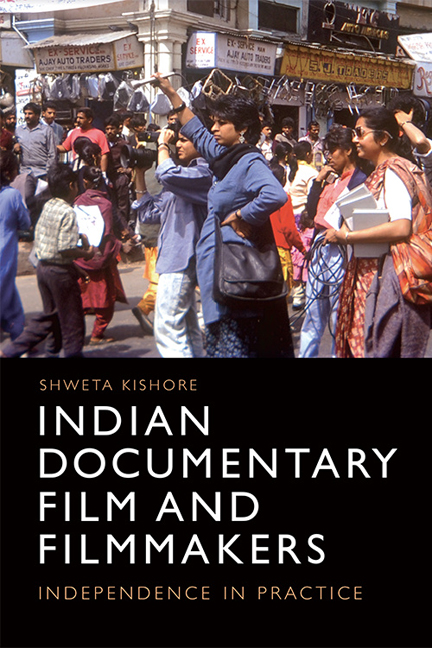Introduction
Published online by Cambridge University Press: 24 April 2021
Summary
We Are Independent Filmmakers
In May 2015, an email arrived on the Vikalp Films for Freedom listserv, a community of over 300 documentary filmmakers dispersed across India. The communication, written by a well-known filmmaker, described a humiliating confrontation with the police and mainstream press as the filmmaker was attempting to film a public protest. Labelled ‘faker’ by the policemen and journalists, a reference to his non-affiliated, independent status, the filmmaker was accused of filming the public events for personal profit. He was asked to prove his professional identity and eventually forced to delete the footage he had recorded. The filmmaker ends his email with a noteworthy question indicative of a discourse of legitimacy employed to distinguish independent from authorised or official media producers:
We filmmakers don't make films for our personal interest, we make films to seek the truth and present it to our audience to see and act upon it. But the real question is, why one has to be a journalist or a reporter to make films. But we as independent filmmakers want our own rights to shoot wherever we want when making films for public interest. [sic]
Amongst the Vikalp community, the email reignited demands for the public recognition of independent documentary filmmakers as legitimate media producers, bringing to the fore key dimensions of the practice of independent documentary in contemporary India. The discussion underlines the interventionist public objective of many independent documentary filmmakers and the struggle against forces that seek to curtail this socially committed media practice. On a more fundamental level, the filmmaker's questions touch deeper issues about the ambivalence surrounding the identity of independent cultural producers in a public domain where professional identities are defined and approved through institutionalised processes which mediate the scope and nature of functions performed by individuals. As the email indicates, even as the independent filmmaker and journalists witness and record the same phenomenon, it is the professional journalists who are granted police sanction to report the events and thus construct its public narrative. Independence, as the abovementioned filmmaker articulates, is a position located external to the organised and officially sanctioned systems of media and information production.
- Type
- Chapter
- Information
- Indian Documentary Film and FilmmakersIndependence in Practice, pp. 1 - 20Publisher: Edinburgh University PressPrint publication year: 2018



